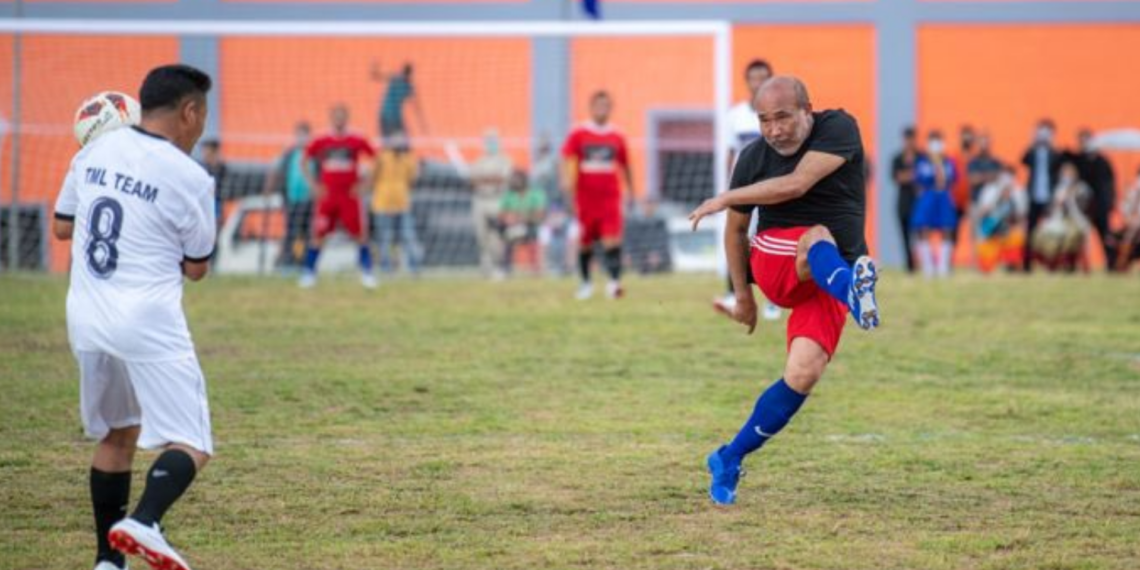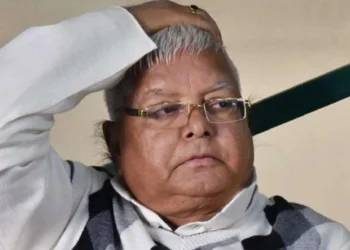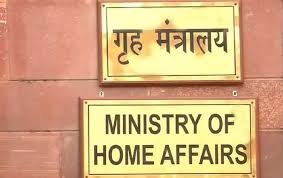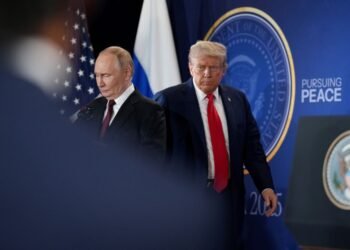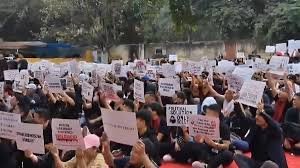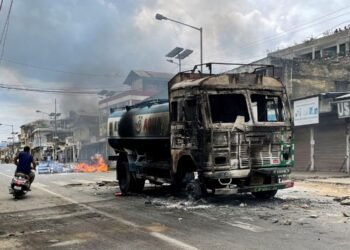Following his sports career, Singh ventured into journalism by founding Naharolgi Thoudang in 1992, a newspaper that highlighted socio-political issues in Manipur. His editorial stance on local issues led to his arrest in 2002, when the publication faced sedition charges related to separatist speeches, further complicating his career path.
By PC Bureau
Facing criticism for his handling of the volatile situation in Manipur, Nongthombam Biren Singh, the Chief Minister of the state, has had a career marked by achievements across sports, journalism, and politics. However, his journey has not been without controversy. Among the most significant challenges he faced was being charged with promoting a separatist agenda, which led to his arrest
However, his leadership in dealing with the tensions between the Kuki and Meitei communities has come under intense scrutiny, especially after widespread violence and displacement.
Born on January 1, 1961, in Luwang Sangbam Mamang Leikai, Imphal, Biren Singh’s journey began with a passion for football, a sport that laid the foundation for his professional career. From his early days, he was a talented player and soon became an integral part of the local football scene in Manipur. Singh’s professional football journey took a significant leap when he was recruited by the Border Security Force (BSF) team at just 18 years old. In doing so, he became the first Manipuri footballer to play outside the state—a remarkable achievement that brought him national recognition.
One of the key highlights of his football career was participating in the 1981 Durand Cup Final, where the BSF team triumphed over Mohun Bagan with a 1-0 victory. Singh played a pivotal role in the win, contributing both on the field and through his leadership skills. This victory was a defining moment in Singh’s sports career and cemented his reputation as one of the rising stars in Indian football during the early 1980s. He continued playing with the BSF until 1992 before returning to Manipur to play for the state team. His successful stint in football laid the groundwork for his later transition into journalism and politics.
In 1992, Biren Singh shifted his focus to journalism by founding Naharolgi Thoudang, a regional newspaper dedicated to covering socio-political issues affecting Manipur. As editor of the newspaper until 2001, Singh used the platform to highlight the challenges facing the state, including ethnic tensions, insurgencies, and governance issues. His involvement in journalism, however, was not without controversy. In 2002, Naharolgi Thoudang published speeches linked to separatist sentiments, which led to sedition charges against Singh. This period in his life underscored the complex political atmosphere in Manipur and the difficult choices Singh faced as a public figure.
In 2002, Biren Singh entered politics with the Democratic Revolutionary People’s Party and won his first election from the Heingang constituency. His foray into politics marked the beginning of a career that would see him transition through various political phases. In 2003, he joined the Indian National Congress (INC) and was appointed as a minister under Chief Minister Okram Ibobi Singh. However, internal political conflicts within the INC led to his resignation in 2016.
In a dramatic political shift, Singh joined the Bharatiya Janata Party (BJP) and quickly gained prominence within the party. His political fortunes changed in the 2017 Manipur Assembly elections, where Singh retained his Heingang seat and became the Chief Minister of the state. His elevation to the Chief Minister’s post was historic as he became the first BJP leader to assume the role, marking a significant change in the state’s political landscape.
As Chief Minister, Biren Singh introduced several initiatives aimed at improving governance and addressing the state’s longstanding issues. One of his flagship programs was the “Go to Hills” initiative, which aimed to bridge the divide between the Meitei-majority valley and the tribal communities in the hills. The initiative was a response to long-standing grievances and aimed to promote greater integration and harmony between the different communities. Additionally, Singh launched campaigns against drug trafficking and the illegal cultivation of poppy, which gained both praise for targeting major issues affecting the state and criticism for their impact on marginalized communities.
Despite these efforts, Singh’s tenure has been marred by criticism of his handling of the ongoing ethnic violence between the Kuki and Meitei communities. In 2023, tensions between the two communities erupted into violence, leading to widespread unrest and displacement. Both sides accused the other of discrimination and violence, and the situation became increasingly difficult to control. Critics have pointed to the government’s failure to prevent the escalation of violence and to mediate between the two communities as one of the key failings of Singh’s administration. The unrest has tested Singh’s ability to maintain peace and stability in a state fraught with ethnic divisions and socio-political complexities.
As the violence in Manipur continues, Biren Singh faces growing pressure to adopt a more inclusive and balanced approach to governance. Calls for greater dialogue and a more nuanced understanding of the ethnic issues at play have intensified, as both the Meitei and Kuki communities express their frustrations with the government’s response. The ongoing crisis has highlighted the challenges of leadership in a state marked by complex ethnic and political dynamics.
Biren Singh’s leadership, shaped by his experiences in football, journalism, and politics, will ultimately be judged by his handling of the current crisis. His ability to navigate the delicate balance of community relations, address the concerns of both the Meitei and Kuki communities, and restore peace to Manipur will define his legacy as Chief Minister. As Manipur continues to grapple with ethnic divisions and political turmoil, Biren Singh’s future remains uncertain, with his decisions during this time likely to determine his political trajectory and the state’s future stability.


